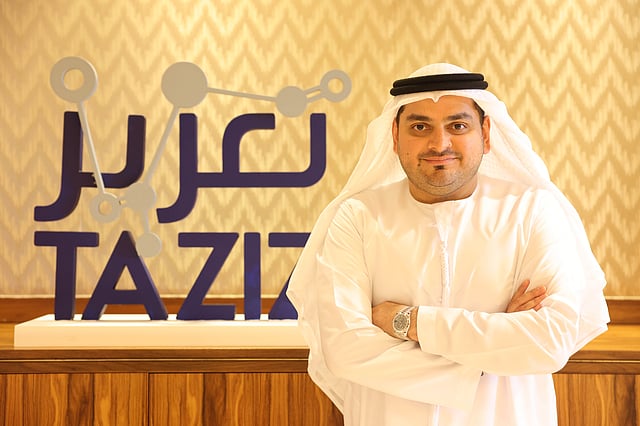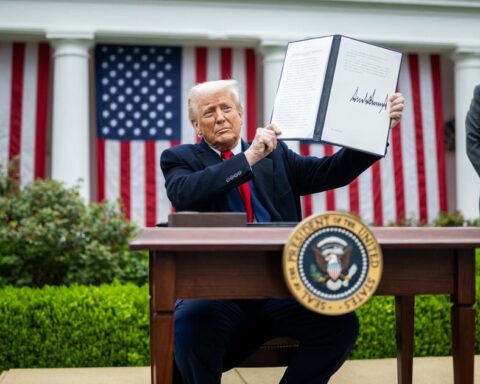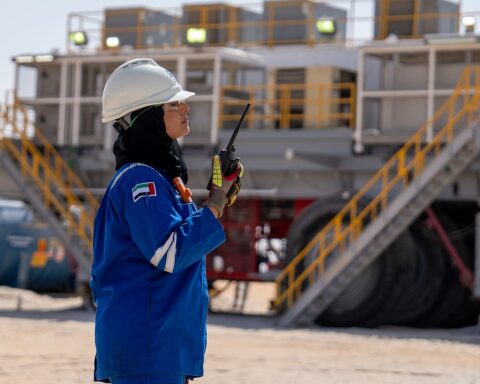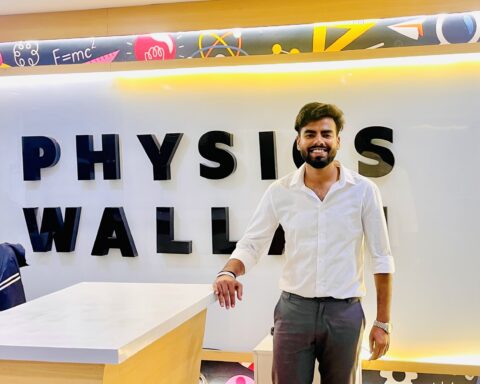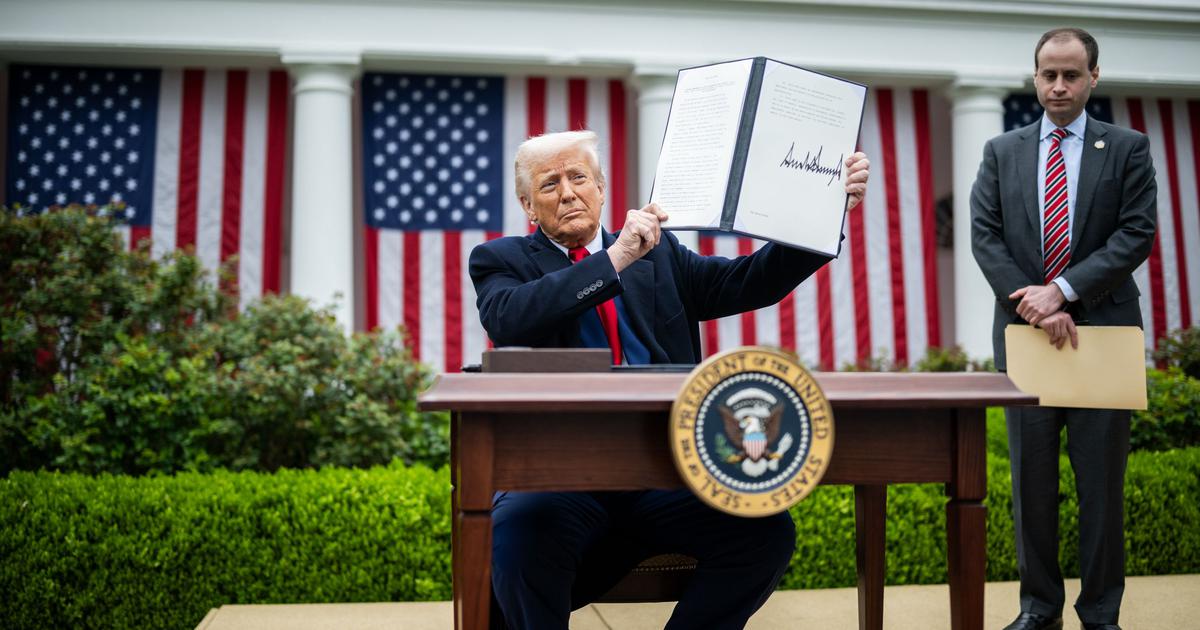The ambitious Ta’ziz project is set to transform Al Ruwais into a global hub for advanced chemical industries, fueled by ADNOC’s strategic vision and public-private collaboration.
Abu Dhabi, UAE — After decades of building its industrial base on oil and gas, the UAE is now looking to diversify and establish its next industrial powerhouse: specialty chemicals. Leading this transformative shift is Ta’ziz, a joint venture between ADNOC (Abu Dhabi National Oil Company) and ADQ (Abu Dhabi Developmental Holding Company), which is setting the stage for the country’s chemical industry to take center stage in the global market.
The Ta’ziz project, housed in the Al Ruwais Industrial City, is positioning itself as the UAE’s new chemical hub, with a vision to develop and produce a wide range of specialty chemicals that will drive the next wave of industrial growth. This marks the beginning of a long-term initiative called ‘Ta’ziz 1.0’, which aims to place the UAE at the forefront of global innovation in advanced industries. The first major milestone will be the establishment of a world-scale 1.8 million tons per annum methanol plant, a cornerstone of this expansive project.
In an exclusive interview with Gulf News, Mashal Saoud Al-Kindi, the chief architect behind Ta’ziz, shared insights into the scale and ambition of this industrial venture, as well as the underlying strategy that will drive the UAE’s leadership in the specialty chemicals market.
Ta’ziz: A Catalyst for Industrial Growth
Mashal Al-Kindi explained that Ta’ziz is not just about building chemical plants; it’s about creating a fully integrated industrial ecosystem. “When you want to diversify further, you bring in the value chains that the UAE already has. So, for instance, building on the gas value chain, such as ethane, methane, and ethylene, is crucial,” Al-Kindi said. The goal is to build a foundation for large-scale chemical production that can power industries globally while supporting the UAE’s ambitious economic diversification agenda.
As part of the project, Ta’ziz is laying the groundwork for essential infrastructure, such as chemical tank farms, utilities hubs, and logistics terminals. “This is a capital-intensive exercise,” Al-Kindi remarked, emphasizing the role of ADNOC and ADQ in not only building the infrastructure but also taking equity stakes in the various initiatives. While Ta’ziz is not forcing itself to own every element of its business, it is committed to building the industrial and logistical framework that will underpin the future of the UAE’s chemical industry.
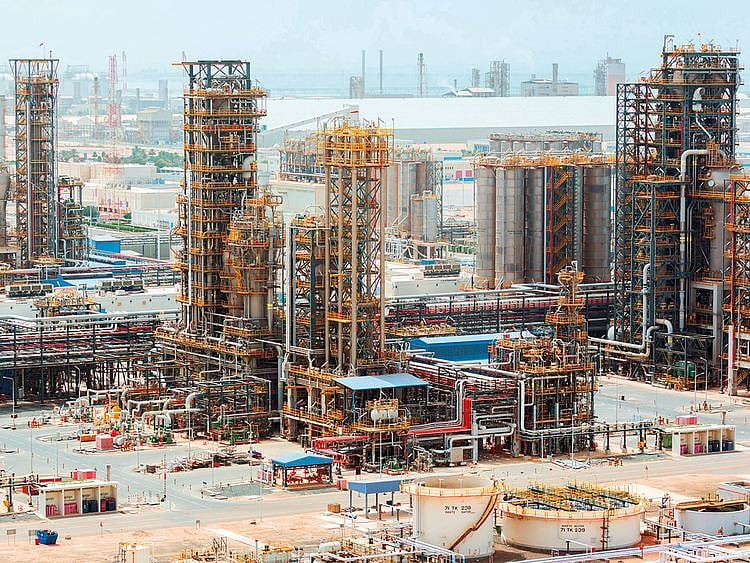
Focusing on Key Chemical Products
The primary products at the heart of the Ta’ziz 1.0 phase include PVC (Polyvinyl Chloride), methanol, and low-carbon ammonia. These chemicals will serve as the building blocks for a range of end-products, positioning Ta’ziz to benefit from global demand. However, Al-Kindi stressed that the scope of Ta’ziz’s capabilities is not limited to these three chemicals alone. “With methanol, you can create products like formaldehyde and acetic acid. For PVC, there’s a wide range of downstream industries that can be established,” he explained.
This emphasis on scalability and flexibility reflects Ta’ziz’s broader vision: to not just produce chemicals but to cultivate an ecosystem that supports the full value chain, from raw materials to finished products.
Public-Private Partnerships and Local Collaboration
A cornerstone of the Ta’ziz model is its reliance on public-private partnerships (PPP). Ta’ziz has forged alliances with a number of local companies that, while not global chemical giants, are playing a pivotal role in developing and scaling the project. Al-Kindi highlighted that seven local entities have partnered with Ta’ziz on its chemical ventures, signaling the importance of local ownership and collaboration in realizing the vision of a sustainable, self-sufficient chemical hub.
“The goal is to create a fully integrated value chain that can generate high-quality products, while providing opportunities for local and international investors to get involved,” Al-Kindi remarked. By allowing local players to participate, Ta’ziz is also nurturing a sustainable industry model that can thrive beyond initial phases.
Infrastructure: The Backbone of Ta’ziz
To truly unlock the potential of the UAE’s chemical industry, infrastructure will be key. Ta’ziz is investing heavily in developing the necessary physical infrastructure, from utilities hubs and chemical storage to logistics, ports, and railways. “By creating economies of scale in utilities, we can make rates more competitive, which is crucial for the growth of this sector,” Al-Kindi said. This ensures that the cost of doing business within the Ta’ziz complex remains efficient and competitive, attracting both local and international businesses.
Looking Toward the Future: Ta’ziz 2.0 and Beyond
While Ta’ziz 1.0 is the immediate focus, the long-term vision extends far beyond these initial phases. Al-Kindi sees Ta’ziz 1.5, Ta’ziz 2.0, and subsequent stages as critical parts of the roadmap. The next five years will be pivotal in completing the first phase of key chemical projects, but this is just the beginning. “As we expand, we will continue to explore new partnerships and new opportunities, both domestically and internationally,” Al-Kindi confirmed.
Ta’ziz is not just about producing chemicals; it’s about positioning the UAE as a global leader in industrial innovation. By 2028, the project aims to have a fully realized chemical hub, complete with state-of-the-art production facilities, and a robust ecosystem that supports both chemical production and its downstream industries.
Conclusion: The UAE’s Future in Specialty Chemicals
The Ta’ziz project represents more than just an industrial initiative; it’s the UAE’s blueprint for the future. With a strong foundation in place, and the backing of ADNOC and ADQ, Ta’ziz is poised to become a global leader in the specialty chemicals sector. The integration of key chemicals, sustainable infrastructure, and local and international collaboration will ensure that the UAE’s ambitions in this space are realized — making the country a vital hub for the next generation of advanced industrial products.
As Ta’ziz 1.0 takes shape and evolves over the next five years, the UAE’s transformation into a global chemical powerhouse will be one of the most exciting developments in the region’s industrial history. The future of the UAE’s chemical industry looks brighter than ever.


